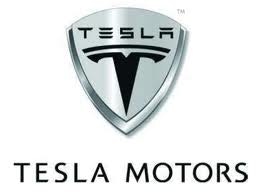Politicians. Automakers. Auto owners. It’s fair to say that most people don’t like recalls. This one is different. Tesla Motors Inc (NASDAQ:TSLA)’s recent voluntary recall of its Model S sedans is yet another sign of how the company is distinguishing itself from other companies.
Tesla Motors Inc (NASDAQ:TSLA) announced the recall due to concerns that a rear-seat latch could malfunction in a crash. On Tesla’s blog, Elon Musk, Chairman and CEO, made sure to convey that no regulatory agency had required the recall
So, why is this seemingly negative event, in fact, a positive sign? Compared to how poorly other companies have handled recalls, Tesla impressively distinguishes itself.

Safety should never be a compromise
Having completed an investigation that lasted for nearly three years, the National Highway Traffic and Safety Administration recommended that Chrysler recall 2.7 million older Jeeps for fear that the fuel tanks could rupture, leading to possible fires in rear-end collisions. Chrysler, unhappy with the decision, met with Transportation Secretary Ray LaHood. The government reconsidered and allowed Chrysler to limit the recall to 1.5 million vehicles.
Three years of investigation results in a 2.7 million-vehicle recall. But several hours of meetings gets it down to 1.5 million vehicles? That’s fairly disconcerting.
Juxtaposed with the transparency and pro-active nature of Tesla Motors Inc (NASDAQ:TSLA)’s recall, Chrysler looks pretty foolish (and not in a motley way).
Attention to customer service
Granted, the recall is only affecting about 260 vehicles; nonetheless, the company is attempting to make it as painless for the customer as possible. “Tesla will pick up the car at a location of the owner’s convenience, provide a Model S loaner if needed, perform the work and bring the car back to the owner a few hours later.” This attention to customer service is consistent with an April 2013 announcement regarding the company’s service and warranty program. For cars that need service, customers are offered the following:
– Fully loaded Model S Performance 85 cars or Tesla Roadsters as loaners
– Tesla Motors Inc (NASDAQ:TSLA) will seamlessly valet the loaner cars to your location
– $600 annual service now optional with no effect on warranty
– Unconditional warranty for Model S battery, even for user error
Additionally, if a customer enjoys the loaner car more than the car which he is having serviced, he will have the opportunity to trade in his Model S for the loaner.
Interest in being proactive
Tesla Motors Inc (NASDAQ:TSLA) decided to initiate the recall before any customer complaints or notice from a regulatory agency. The company discovered the flaw and acted immediately. The expediency with which it acted is reminiscent of its first recall back in 2010 when 439 Roadsters were recalled due to concerns of a possible fire hazard involving the electrical system. In that instance, a customer was the one to identify the problem. According to Tesla Motors Inc (NASDAQ:TSLA)’s letter to the National Highway and Traffic Safety Administration, the customer discovered, “smoke and possible fire behind the right front corner of his vehicle. The customer was driving by a local fire station, where the fire was extinguished.”
These two incidents suggest that customers can be assured that any safety concerns will be addressed expeditiously by the company. Chrysler customers may not be as re-assured.
Recalling some other figures
In order to succeed, Tesla will need to continually distinguish itself from other automakers. In May, sales for the Nissan‘s Leaf electric car totaled 2,138 — resulting in total sales, so far, for 2013 of 7,614. That’s pretty impressive considering that at this time last year, Nissan had only sold 2,613 Leafs. At this rate, Nissan will see Leaf sales of approximately 20,000 for the year. To put things in perspective, though, Leaf sales in May accounted for only 2% of Nissan’s total May sales of 106,558.
General Motors Company (NYSE:GM)’s electric car, the Chevy Volt, has seen total sales so far for the year of 7,157, which is only 100 more vehicles sold than the same period for last year, of which total sales were 23,461.
A Fool’s conclusion
There has been much debate about whether investing in Tesla Motors Inc (NASDAQ:TSLA) is a wise decision. Some argue that it is a passing fad, and the company will fail to overcome all of the obstacles that stand in the way of a new auto company succeeding in the current marketplace; however, if how the company handled the recall is an indicator of how it will handle other obstacles, I’m very impressed — attention to customer service, clear communication with the consumers, and interest in being proactive are all positive takeaways from this potential roadblock.
In fairness, regarding the zero-emission credits, Tesla reports that first-quarter 2013 gross margins were 17%, in part, due to the sale of $68 million worth of credits (12% of revenue) to other car makers, but it maintains guidance of 25% gross margins in the fourth quarter, assuming zero ZEV credit revenue. Granted, these other concerns are quite relevant, and although I am a staunch advocate of what the company is trying to accomplish, I’ll be staying on the side of the road for now — keeping the company on my watch list and waiting for some of those yellow and red lights to turn green before I decide to invest.
Scott Levine has no position in any stocks mentioned. The Motley Fool recommends General Motors Company (NYSE:GM) and Tesla Motors Inc (NASDAQ:TSLA). The Motley Fool owns shares of Tesla Motors. Scott is a member of The Motley Fool Blog Network — entries represent the personal opinion of the blogger and are not formally edited.
The article The Tesla Recall: Bears See a Cloud; Bulls See a Silver Lining originally appeared on Fool.com and is written Scott Levine.
Copyright © 1995 – 2013 The Motley Fool, LLC. All rights reserved. The Motley Fool has a disclosure policy.



